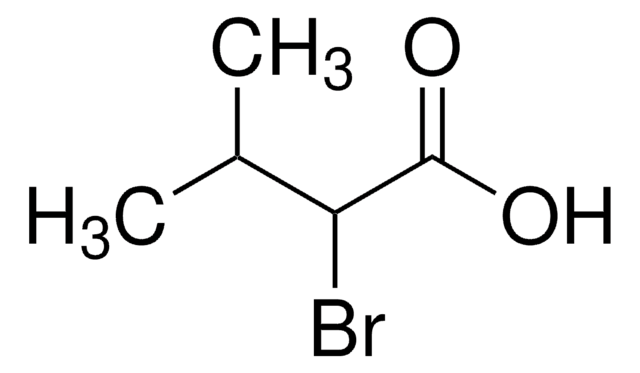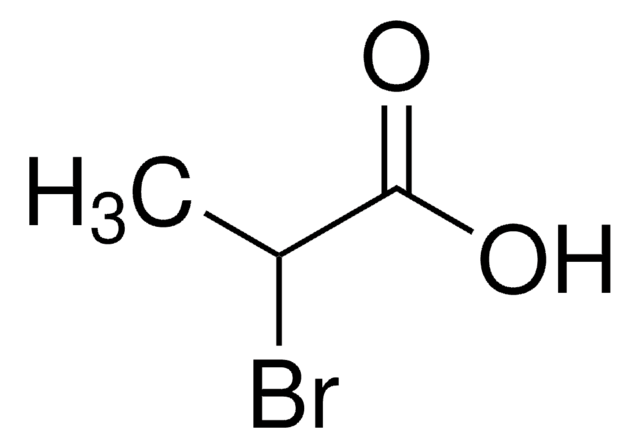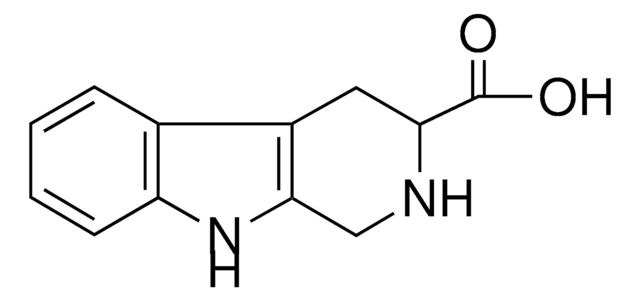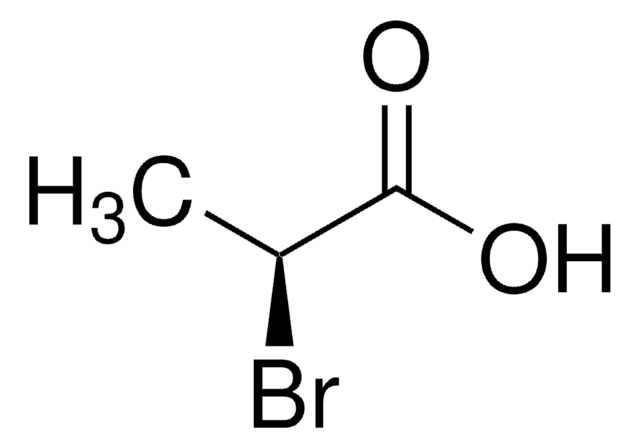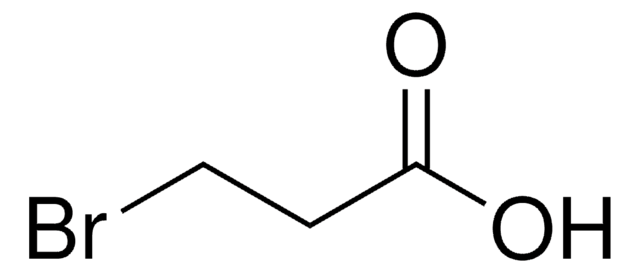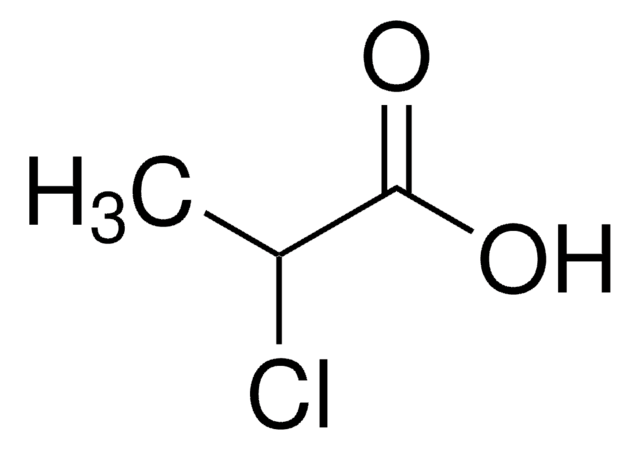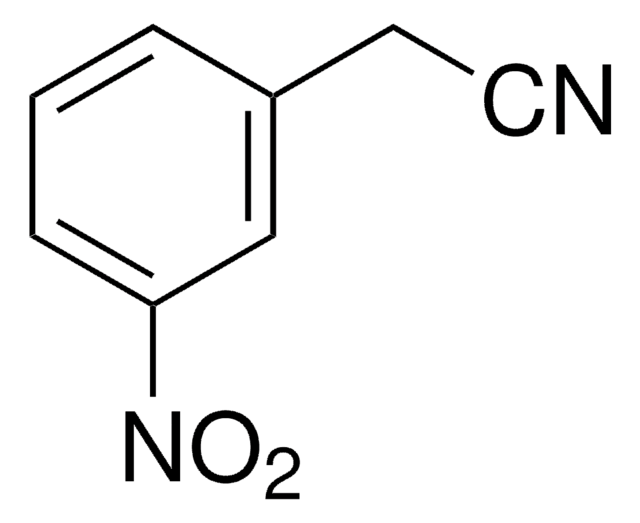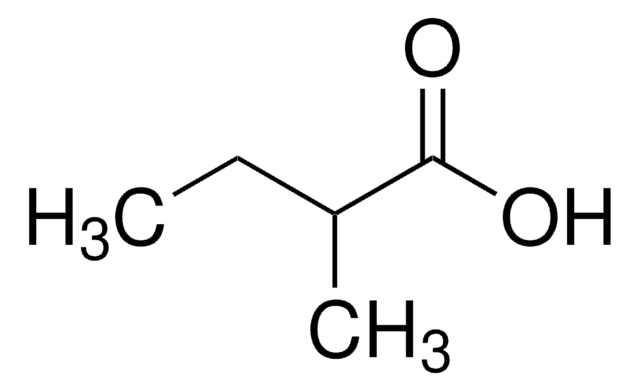All Photos(2)
About This Item
Linear Formula:
(CH3)2CHCH(Br)CO2H
CAS Number:
Molecular Weight:
181.03
MDL number:
UNSPSC Code:
12352101
PubChem Substance ID:
NACRES:
NA.22
Recommended Products
Assay
96%
optical activity
[α]22/D +21°, c = 37 in benzene
bp
90-100 °C/0.5 mmHg (lit.)
mp
35-40 °C (lit.)
functional group
bromo
carboxylic acid
SMILES string
CC(C)[C@@H](Br)C(O)=O
InChI
1S/C5H9BrO2/c1-3(2)4(6)5(7)8/h3-4H,1-2H3,(H,7,8)/t4-/m1/s1
InChI key
UEBARDWJXBGYEJ-SCSAIBSYSA-N
Application
(R)-(+)-2-Bromo-3-methylbutyric acid can be used:
- As an anionic counterpart of morpholinium based chiral ionic liquids applicable in the Heck arylation reaction of 2,3-dihydrofuran.
- As a starting material in the synthesis of fructosyl peptide oxidase inhibitors.
Signal Word
Danger
Hazard Statements
Precautionary Statements
Hazard Classifications
Acute Tox. 4 Dermal - Acute Tox. 4 Inhalation - Acute Tox. 4 Oral - Eye Dam. 1 - Skin Corr. 1B
Storage Class Code
8A - Combustible corrosive hazardous materials
WGK
WGK 3
Flash Point(F)
235.4 °F - closed cup
Flash Point(C)
113 °C - closed cup
Personal Protective Equipment
dust mask type N95 (US), Eyeshields, Gloves
Choose from one of the most recent versions:
Already Own This Product?
Find documentation for the products that you have recently purchased in the Document Library.
Effect of chiral ionic liquids on palladium-catalyzed Heck arylation of 2, 3-dihydrofuran
Roszak R, et al.
Applied Catalysis A: General, 409, 148-155 (2011)
M Polhuijs et al.
Biochemical pharmacology, 44(7), 1249-1253 (1992-10-06)
Glutathione (GSH) conjugation of the separate enantiomers of five 2-bromocarboxylic acids and some of their urea derivatives by rat liver GSH transferases (GSTs) was studied. The liver cytosolic fraction conjugated all compounds, except for (R)-2-bromoisovaleric acid, with a variable degree
M Polhuijs et al.
Biochemical pharmacology, 38(22), 3957-3962 (1989-11-15)
The glutathione (GSH) conjugation of (R)-and (S)-alpha-bromoisovaleric acid (BI) in the rat in vivo, and its stereoselectivity, have been characterized. After administration of racemic [1-14C]BI two radioactive metabolites were found in bile: only one of the possible diastereomeric BI-GSH conjugates
J M Te Koppele et al.
The Biochemical journal, 252(1), 137-142 (1988-05-15)
The stereoselectivity of purified rat GSH transferases towards alpha-bromoisovaleric acid (BI) and its amide derivative alpha-bromoisovalerylurea (BIU) was investigated. GSH transferase 2-2 was the only enzyme to catalyse the conjugation of BI and was selective for the (S)-enantiomer. The conjugation
Chromatograms
application for HPLCOur team of scientists has experience in all areas of research including Life Science, Material Science, Chemical Synthesis, Chromatography, Analytical and many others.
Contact Technical Service